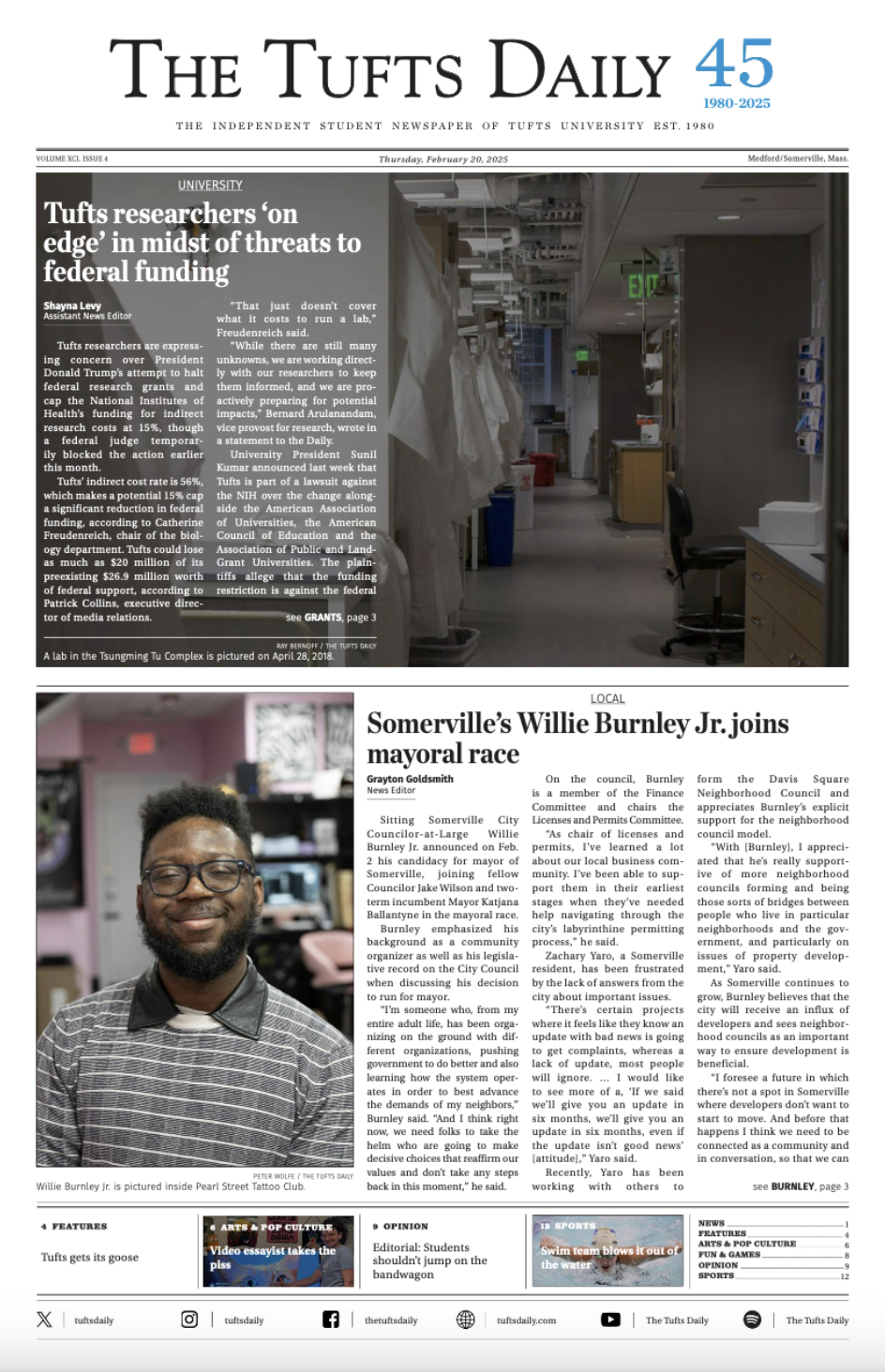Students who vote in Massachusetts today will have more than just candidates to consider, as five questions will be on the ballot. Over the past few weeks, the Daily has written articles investigating the first three, which are binding and will therefore be implemented as law if the majority of voters support them. The last two are non-binding and are meant simply as recommendations to local leaders.
Question 1 (binding): Income tax elimination
This highly debated proposal seeks to do away with the Massachusetts income tax, reducing the existing 5.3-percent toll to 2.65 percent beginning January 2009 and eliminating it altogether by January 2010. The proposed law would cut into the state budget, of which income tax revenues make up 40 percent. Its proponents say it would cut wasteful expenditures while putting more money in the hands of taxpayers. The average taxpayer is expected to save $3,600 yearly. But the law could potentially deal a blow to the state and local government infrastructure while prompting a boost in property taxes, its detractors argue.
Question 2 (binding): Decriminalization of marijuana
The referendum aims to lessen the civil penalties associated with possessing one ounce or less of marijuana. Under the proposed law, offenders age 18 or older would be forced to forfeit the marijuana and pay a $100 fine. Minors would face the same penalty and, additionally, would be subject to a drug awareness program to be completed within one year of the offense. Opponents of the referendum argue that the decriminalization could be seen as an endorsement of the drug and encourage increased marijuana use. Supporters maintain that the changes will cut down on frivolous arrests and will not be harmful because marijuana will remain illegal.
Question 3 (binding): Prohibition of dog racing
The proposal seeks to make dog racing, in which any form of betting on the speed or ability of dogs occurs, illegal in the state of Massachusetts. Known as the "Greyhound Protection Act," the proposed law stems from questions about whether the conditions that the greyhounds face, both on and off the racetrack, are humane. Racetrack officials contend that they are committed to the welfare of the animals and have consistently met state-imposed regulations. The proposal would necessitate the closing of two greyhound racetracks in Massachusetts and some say it could eliminate the jobs of over 1,000 people working in the industry.
Question 4 (non-binding): Egalitarian religious policy
The resolution calls on the federal government to support the rights of the international community "to live free from laws that give more rights to people of one religion than another." The resolution draws attention in particular to non-Jewish Palestinians of Israel. It is being proposed by the Somerville Divestment Project, a pro-Palestinian group that proposed a similar resolution in 2006 that failed to pass.
Question 5 (non-binding): Abolition of state legislature
The question suggests replacing the state legislature with a body known as the Commonwealth Jury, to be made up of 100 randomly selected adult residents of Massachusetts. The jurists will each serve one-year terms and will be given all the powers of the current state legislature. The measure is non-binding, however, and thus left to the state government to put into action if it so chooses.





